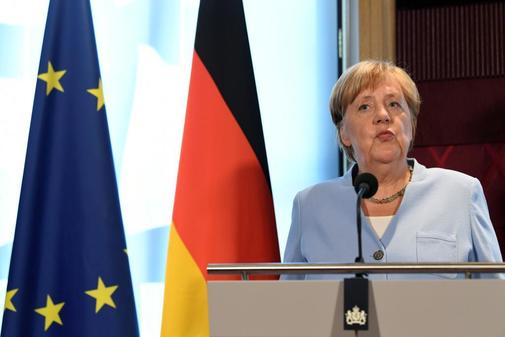- Jackson Hole: Central bankers finalize their artillery to face the recession
After that entelechy called "the markets" (and that other "non-entelechy" called Angela Merkel ) made us swallow the virtues of austerity, it turns out that: 1) There has never been so much debt; 2) There has never been so much demand for debt, to the point that it has minimal or even negative interest; and 3) Angela Merkel, the saving housewife (as she liked to define herself) of the Monetary Union is going to spend 50,000 million euros to refloat the German economy.
That scenario, which affects the United States and the European Union alike, has a name: Japan . And, if we rely on the Japanese example, this can last. As explained last week Cliff Assnes , founder and top manager of the hedge fund AQR, a monster that manages 226,000 million dollars (204,000 million euros) in a letter to its customers, Japan has ridiculously low debt returns and ridiculously bonuses expensive "since the time when many of today's traders were in shorts." Almost 30 years, to be exact.
In the world there are 15.4 billion euros of debt with negative returns. Of these, three quarters are public debt, according to data prepared jointly by Bloomberg and Barclays . When we add that debt "linked to governments" - for example, from private entities, but guaranteed by the states - the proportion amounts to about 90%. But, let's see, if the states were bankrupt, why is the private sector lending them 30-year debt at negative interest rates, as has happened this week in precisely Germany? (The best example of how this situation challenges, at least in part, the logic that they have been selling us is that almost half of the debt with negative interests is in the most indebted country: Japan).
The day that this bubble explodes, the losses of some investors can be of ordago. To explain it, nothing better than the example of the 100-year Austrian bond, which in the last two years has doubled its value and, in that period, has seen its profitability fall from 2.1% to 0.7%. Anyone who now buys such a bond in the secondary market can lose up to half (or more) of what they have paid for it simply if interest rates go up a bit, because the value of bonds moves in reverse (although not inversely proportional) to interest.
That is: if interest goes up, the price falls. And vice versa, what is happening now. It is pure supply and demand. Investors want to buy bonds and are willing to pay more than they are worth and to receive tiny interests, or even to pay them interest for having that debt, because they expect that the price of those bonds will rise. Demand for debt is greater than supply.
With those very low debt interests - and lowering further, as the world economy slows down - the Jackson Hole monetary conclave has only been able to make it clear that ... central banks cannot do more. The official interest rates, which are those set by the monetary authorities, are at minimum levels, so the impact of monetary policy is irrelevant. Lowering rates from 4% to 0% affects the real economy. Lower them from 2.25% to 0%, no. The Federal Reserve itself has admitted it. The ECB itself has recognized it.
And even the CEOs of JP Morgan ( Jamie Dimon ), Bank of America ( Brian Moynihan ) Citigroup ( Michael Corbat ) told Dald Trump last 14, when he called them in the middle of a meeting that the managers were taking with the secretary of the US Treasury, Steven Mnuchin . After all the austerity they sold us - or, rather, that they forced us to buy - it turns out that now there is a lack of debt.
According to the criteria of The Trust Project
Know more- Angela Merkel
- U.S
- European Central Bank
Trade war and Europe in the back
Thoroughly positive view of Europe (for a change)
Grandstand Keys to a bad situation

